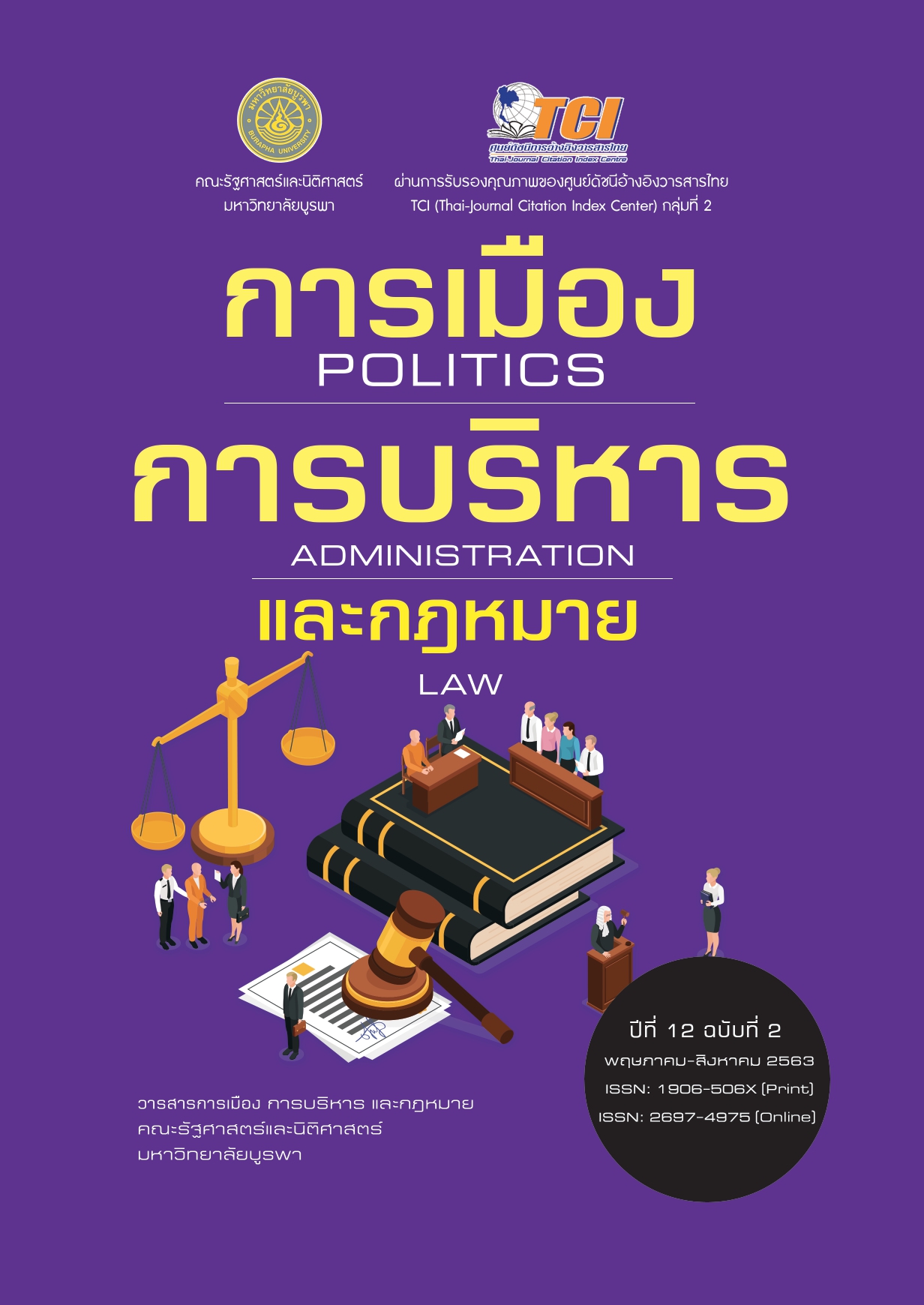Autonomous University in the Context of Neo-liberalism
Keywords:
Higher education, Autonomous university, Neo-liberalismAbstract
The early Thai universities were established as state universities. The main goal is to produce highly skilled manpower and techniques for the government and economic system of the country. Over time, both external systems have been modified, including government policies, regulation, etc., and internal changes, including management, status of the university, etc. In accordance with changes in the global economic, political and social systems of the world. The change of status from a public university to an autonomous university is a major change once again causing a change in the ideology of higher education. Changes aim to achieve independence in the management of budget and assets. Personnel management to motivate qualified personnel, and academic freedom So that the university can survive to meet the needs and expectations of societies that adopt the new liberal thinking concept as the basic concept of policy formulation effectively. The concept of changing the status of public universities to be autonomous universities in Thailand started in 1964 and came true for the first time in 1990 when Suranaree University Established as the first autonomous university in Thailand. Factors that influence the change of status to a state-controlled university are: 1) momentum from international organizations such as the World Bank, the United Nations International Monetary Fund World Trade Organization That supports new liberal concepts and principles. 2) Educational Transfer, such as Educational Diffusion, taking samples from lessons Borrowing policies or spreading education consists of direct and indirect processes. 3) The process of making education as a product which is the result of adopting a new liberal concept as a guideline for state operations.
References
เบญวรรณ อุปฌาย์. (2559). การบริหารจัดการชีวิตของประชาชนในมิติด้านสิ่งแวดล้อม. วารสารการจัดการสิ่งแวดล้อม, 12(2). / 2529.
ปิ่นแก้ว เหลืองอร่ามศรี และอรัญญา ศิริผล. (2558). ย้อนพินิจการประกันคุณภาพอุดมศึกษาด้านสังคมวิทยาและมานุษยวิทยา. เชียงใหม่: มหาวิทยาลัยเชียงใหม่.
ไพฑูรย์ สินลารัตน์, วราภรณ์ บวรศิริ, พรชุลี อาชวอำรุง และพันศุกดิ์ พลสารัมย์. (2550). อิทธิพลทางการศึกษาของต่างประเทศที่มีต่อการจัดการศึกษาของไทย. กรุงเทพฯ: คณะครุศาสตร์ จุฬาลงกรณ์มหาวิทยาลัย.
วิจิตร ศรีสอ้าน. (2552). มหาวิทยาลัยในกำกับของรัฐในทัศนะของ ศาสตราจารย์ ดร. วิจิตร ศรีสอ้าน. นครศรีธรรมราช: มหาวิทยาลัยวลัยลักษณ์
สมโชติ วีรภัทรเวธ. (2550). พัฒนาการของมหาวิทยาลัยไทย พ.ศ. 2459-2500. วิทยานิพนธ์อักษรศาสตรมหาบัณฑิต, ภาควิชาประวัติศาสตร์, บัณฑิตวิทยาลัย, จุฬาลงกรณ์มหาวิทยาลัย.
สรรเสริญ วงศ์ชะอุ่ม. (2554). การวางแผนพัฒนาประเทศ. กรุงเทพฯ: ศูนย์การพิมพ์เพชรรุ่ง.
สุเมธ แย้มนุ่น และคณะ. (2536). การพัฒนาระบบบริหารสถาบันอุดมศึกษาของรัฐทีมิใช่ส่วนราชการ. กรุงเทพฯ: กระทรวงศึกษาธิการ.
สุรพล นิติไกรพจน์ และกฤติน ดิ่งแก้ว. (2559). มหาวิทยาลัยไทย: พัฒนาการมหาวิทยาลัยในกำกับและกฏหมายที่เกี่ยวข้องกับการบริหารงาน. กรุงเทพฯ: สำนักพิมพ์มหาวิทยาลัยธรรมศาสตร์.
สำนักงานเลขาธิการสภาการศึกษา. (2560). รายงานการวิจัย “ประสิทธิภาพและการบริหารจัดการของมหาวิทยาลัยในกำกับของรัฐ”. กรุงเทพฯ: กระทรวงศึกษาธิการ.
อมรวิชช์ นาครทรรพ และคณะ. (2555). อุดมศึกษาไทยในรอบศตวรรษ. กรุงเทพฯ: สถาบันรามจิตติ.
Miller, B. (2010). Skills for sale: what is being commodified in higher education?. Journal of Further and Higher Education, 34(2), 199-206.
Carnoy, M. (1995). Rates of Return to Education. In Carnoy, M. The International Encyclopedia of the Economics of Education. Oxford, UK: Pergamon.
Lynch, K. (2006). Neo-liberalism and Marketization: the implications for higher education. European Education Research Journal, 5(1).
Perry. L. B., & Geok-hwa Tor. (2009). Understanding educational transfer: theoretical perspectives and conceptual frameworks. New York: Springer link.
Levidow, L. (2002). Marketizing Higher Education: Neoliberal Strategies and Counter-Strategies. K.Robins and F.Webster, eds, In The Virtual University? Knowledge, Markets and Management. (pp. 227-248). Oxford, UK: Oxford University Press.
Morey, A. L. (2004). Globalization and the Emergence of For-Profit Higher Education. Higher Education, 48(1), 131-150.
Friedman, M. (1962). Capitalism and Freedom. Chicago: The University of Chicago.
Lao, R. (2015). A Critica Study of Thailand’s Higher Education Reforms The culture of borrowing. London: Routledge.
Robertson, S. (2002). Changing Governance, Changing Equality? Understanding the Politics of Public-Private Partnerships in Europe. In ESF/SCSS Exploratory Workshop on “Globalisation, Education Restructuring and Social Cohesion in Europe”, Barcelona, Spain.
UNESCO. (2000). The right to education: towards education for all throughout life. France: UNESCO Publishing.
Yusa Taiko. (2012). Neoliberal Education Reforms and Debates around Neoliberalism: Finace-driven Reforms in Chilean Higher Education. Losangeles: University of California.






